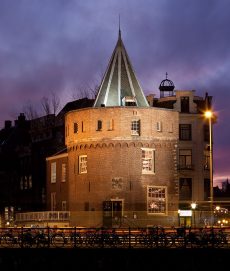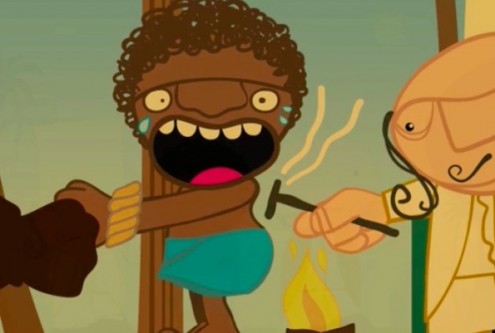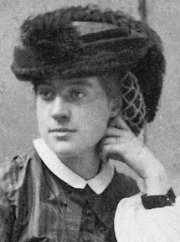
Have Social Justice Warriors (SJWs) made it to the Netherlands? I thought we were still good for a while, but I’m calling it: anything with any politically incorrect attachment to the Netherlands’ colonial past is going to have to watch out.
Of course, things need to change for the better and a European country like the Netherlands still grappling with the reality of its colonial past is painfully aware of this, but threatening people is not the way to go. Threats are the new norm, which is scary, as they suppress any possible consensus reaching, something this country was also built on.
The VOC Café (VOC = Dutch East India Company) in downtown Amsterdam located in the Schreierstoren (Schreier tower) is going to change its name purely to stop the barrage of threats the owners keeps receiving. Why now and not ages ago, I can only imagine, although it has a strong SJW flavour to it. The owners are scared and are giving in.
The café has been around since 1995 with ‘VOC’ in the name and nobody said squat. The easy accessibility to social media has to have made a difference in sending threats. The owners have said they have been receiving threats for years now, but it has escalated enough to make them change their name, a costly endeavour.
“Our business is called VOC Café because from here Henry Hudson set sail to Manhattan, where New Amsterdam was founded, later called New York.” By the way, it’s a beautiful cafe, that I can tell you. The owners also completely understand that names of streets, which are being scrutinised, need to change, but believe it take some time. SJW often want everything to happen instantaneously, and their impatience makes them dangerous and volatile.
(Link: parool.nl, Photo of The Schreierstoren by Massimo Catarinella, some rights reserved)





 Apart from the Arctics, the interior of Africa was one of the last places left for Europeans to ‘discover’ and finding the source of the Nile was a major goal for 19th century explorers.
Apart from the Arctics, the interior of Africa was one of the last places left for Europeans to ‘discover’ and finding the source of the Nile was a major goal for 19th century explorers. That was only one game, of course, but it seemed to bring into focus what I had been observing at the Ajax youth academy, as well as learning about American soccer. How the US develops its most promising young players is not just different from what the Netherlands and most elite soccer nations do — on fundamental levels, it is diametrically opposed.
That was only one game, of course, but it seemed to bring into focus what I had been observing at the Ajax youth academy, as well as learning about American soccer. How the US develops its most promising young players is not just different from what the Netherlands and most elite soccer nations do — on fundamental levels, it is diametrically opposed.